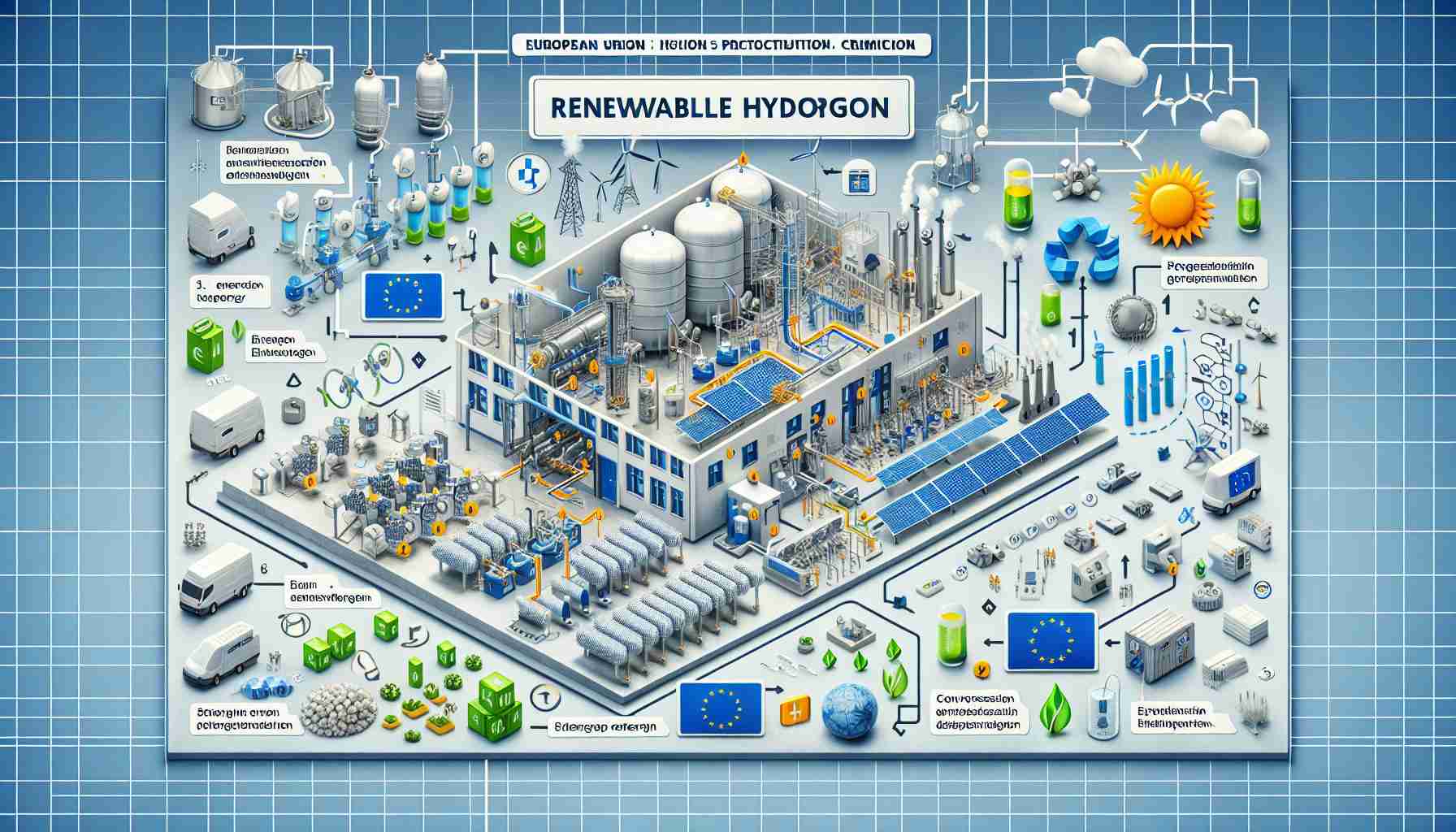Recent legislation within the European Union outlines critical standards for classifying hydrogen and hydrogen-derived fuels as renewable, specifically as renewable fuels of non-biological origin (RFNBO). This regulatory framework is focused on ensuring that hydrogen is generated through electrolysis powered by renewable energy sources.
To determine if hydrogen qualifies as RFNBO, three main criteria have been established: temporal correlation, geographical correlation, and additionality. The first two criteria ensure that hydrogen production aligns with periods and locations where renewable electricity is abundantly available. Meanwhile, the additionality criterion is crucial as it prevents the monopolization of existing renewable energy resources for hydrogen production.
The legislation describes two connection types for electrolysis units: direct connections to nearby renewable power plants and virtual connections through power purchase agreements (PPAs). There are also exemptions where the strict adherence to these criteria is not necessary, particularly in regions with over 90% renewable energy or with exceptionally low carbon intensity.
These exemptions offer advantages such as not having to create new energy capacities specifically for hydrogen production. Electrolysis can operate using existing renewable resources without the prerequisites of additional agreements, streamlining the production process.
Countries like Sweden exemplify this approach, with its various bidding zones displaying compliance with the outlined criteria. This regulatory landscape facilitates the realization of renewable hydrogen projects, advancing the EU’s sustainability goals.
Essential Tips and Life Hacks for Navigating Renewable Hydrogen Legislation
As the European Union pushes forward with critical legislation surrounding hydrogen and hydrogen-derived fuels, particularly regarding Renewable Fuels of Non-Biological Origin (RFNBO), understanding these regulations will be key for businesses and stakeholders in the renewable energy sector. Here are some valuable tips, life hacks, and interesting facts to help you navigate the world of renewable hydrogen.
1. Leverage Renewable Energy Resources
To ensure your hydrogen production qualifies as RFNBO, it is crucial to utilize renewable energy sources effectively. Consider setting up or partnering with local renewable energy providers. This could involve installing solar panels or wind turbines specifically designed for electrolysis operations, leading to significant cost advantages over time.
2. Understand the Three Main Criteria
Familiarize yourself with the three criteria outlined in the legislation: temporal correlation, geographical correlation, and additionality. Each of these parameters has implications for eligibility and compliance. For instance, maintaining a real-time connection to renewable energy sources during hydrogen production can save on costs and ensure you meet legal standards.
3. Take Advantage of Exemptions
Certain regions that boast over 90% renewable energy might allow for exemptions from strict compliance. If you operate in such a zone, you can streamline your operations. This means you can use existing renewable resources without additional agreements, hence reducing bureaucratic delays and costs associated with compliance.
4. Explore Power Purchase Agreements (PPAs)
Utilizing power purchase agreements can significantly impact your strategy. Engaging in virtual connections allows you to purchase renewable energy remotely, maximizing your sourcing options and potentially lowering costs. Forming strategic partnerships with renewable energy suppliers can create a more stable energy supply for your hydrogen production.
5. Keep an Eye on Compliance Trends
Staying updated on legislative changes and compliance trends within the EU can give you a competitive edge. Subscribe to industry newsletters, attend seminars, and participate in webinars focusing on renewable energy. Knowledge is power, especially in such a rapidly evolving sector.
6. Collaborate with Experts
Consider reaching out to consultants or firms specializing in renewable energy legislation. While this may incur some upfront costs, the expertise they provide can help navigate complex regulatory landscapes and avoid potential pitfalls.
Interesting Fact: The EU aims to significantly scale up hydrogen production to meet its sustainability goals. According to recent projections, the hydrogen market could reach a value of €630 billion by 2050, driven by increasing demand for cleaner fuel alternatives.
In summary, as the framework around RFNBO evolves, it’s essential to stay informed and proactive. Embrace technology, form strategic partnerships, and leverage legislative advantages to thrive in the renewable hydrogen sector. For further resources and insights, visit EU Europe.

